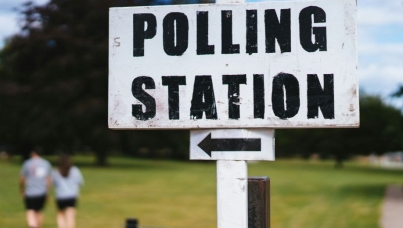Business leaders and the prospect of independence
Download the article as a PDF Hardly a week goes by without the media reporting the views of a well-known business figure on the forthcoming referendum on independence.
Whether it’s Jim McColl pledging his support for ‘Yes Scotland’, Michelle Mone threatening to move her business south in the event of a Yes vote or Sir Tom Farmer arguing for the detailed debate to be postponed until nearer the date of the referendum, we seem to have a keen appetite for reading the latest deliberations from the business community in advance of next year’s vote.
For the two campaigns at the heart of the debate, endorsements from business leaders, like those from celebrities, are huge prizes. Each time a well-known entrepreneur or business leader publically states any opinion on the perceived economic effects of a vote for independence, one side or the other takes to the airwaves or to their laptops, trumpeting these views as proof either that Scotland would be more prosperous as an independent country, or that the economy will go to hell in a handcart if we separate from the rest of the UK.
Perhaps this at least partly explains why so many business leaders and large employers are so reluctant to state their opinion. What would they gain from such public pronouncements and would their views really affect the outcome anyway?
While the reluctance to make public announcements, particularly at this stage of the campaign, is understandable, our polling illustrates that the single most important issue to voters ahead of the referendum will be around business and the economy. And, of course, it is decisions made by large employers and business figures in Scotland that will, in part, drive the economic future of the country.
Conducting surveys is one way round the reluctance to make public announcements, offering the opportunity to give an entirely confidential view. When Ipsos last took the temperature of senior decision-makers in medium sized and large organisations in the autumn of 2012, we found that over half thought that independence would worsen prospects for their business and seven in ten thought it would have a negative impact on the Scottish economy as a whole.
On the face of it this seems like a pretty definite statement. But there are a couple of notes of caution. Firstly, the survey was conducted a full two years before the referendum and before the detailed debate about the economic consequences of independence has taken place. Secondly, the survey may, in part, reflect a natural conservative stance of many business leaders, who prefer dealing in certainty than perceived risk. In advance of the first Holyrood elections in 1999, our survey of senior business figures in Scotland revealed that only a quarter expected devolution to yield an improved business environment. Yet in the period since, it is widely acknowledged that much of the business community has benefited from devolution.
Our 2012 survey also found that three quarters of senior business decision makers in Scotland had yet to begin planning for the possibility of Scotland becoming an independent country. This may also reflect the possibly conservative outlook of many business leaders. It may also reflect a view that, according to polling evidence over many years, there is a greater likelihood of Scotland staying within the UK than there is of a vote for independence. Although our latest general public polling in February showed a marginal increase in support for independence, all recent polls and a historical view perspective of polls illustrates the challenge faced by ‘Yes Scotland’ if it is going to win the referendum. The other reason for an apparent lack of preparation for the possibility of independence may also simply represent business priorities, in other words most business leaders are running their core businesses rather than planning for the possibility of independence.
The referendum is still over a year and a half away and the detailed debate around the future of Scotland’s economy and business environment is still to be had. We may never publically know the views of many of Scotland’s leading business figures and companies but further research will throw light on the overall views of businesses of all sizes. And the decisions and actions of the business community will continue to be crucial in determining Scotland’s economic future, regardless of the result next year.
This article was originally published in Business Scotland



